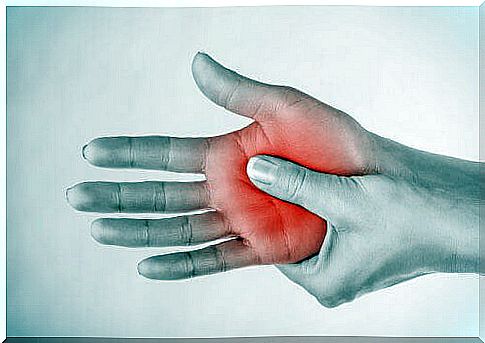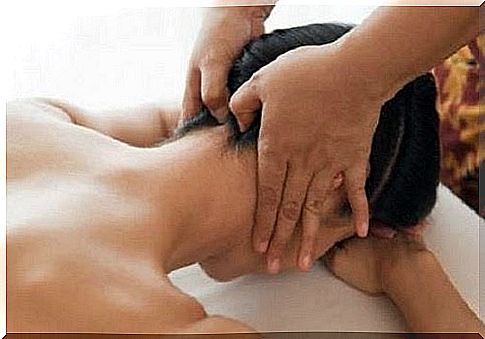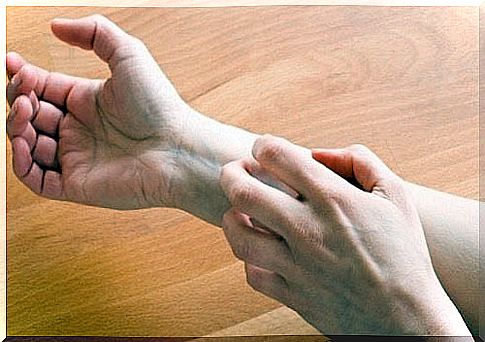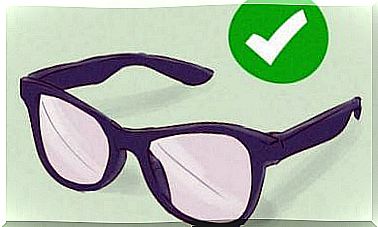Tingling In Hands And Feet: Why Does It Occur?

It is likely that you have experienced that you have begun to feel a tingling sensation after sitting for too long with your legs crossed. This is a common thing and nothing to worry about. However, if you feel tingling in your hands and feet on a regular basis, you should pay attention to it.
It is not normal to experience this feeling continuously. If this is the case, you should write down the symptoms and consult your GP.
Here are the most common causes of tingling in the hands and feet.
Tingling in hands and feet: A pinched nerve in the neck or back?

A poor sleeping position or a sports injury can pinch a nerve in the neck or back.
Although this is not a serious problem, it can cause a tingling sensation in the hands and feet. You may feel that you slept on the wrong shoulder or that you get pain in certain positions.
It is important to take care of this problem as soon as possible, as it can lead to a more serious condition such as arthritis (arthritis).
Although there are medications that can help you deal with the pain, you may want to consult a physiotherapist who can loosen the tension in the muscles and get the nerves back in place.
An important thing to remember is to never try to solve the problem yourself through massage or exercises on your own. This can lead to more serious injuries due to your lack of knowledge. Let an expert help and instruct you.
Vitamin B12 deficiency
Do you feel tingling in both hands and feet? Vitamin B12 deficiency can be the problem. This leads to anemia due to an inability to produce red blood cells.
If this applies to you, you will also experience:
- Exhaustion
- Dizziness when exercising or getting up
- Pale skin
- Inability to concentrate
- Problems breathing
- Depression
Take a look at your diet and start making some necessary changes. The first thing you can do is eat more foods rich in vitamin B12, such as:
- Poultry
- Beef
- Seafood
- Yogurt
- Egg
- Dairy products
- Lamb
- Liver
- Tuna
- Trout
This deficiency is very common among those who have an extreme vegetarian or vegan lifestyle.
Could this be you? Have you had a dramatic change in your diet, and have started to feel tingling in your hands and feet? In that case you should add:
- Cereals (including energy bars of cereals)
- Tofu
- Soy and soy products
- Powdered milk
Carpal tunnel syndrome

Do you spend too much time sending messages on your smartphone or typing on your computer? These repetitive movements and vibrations can cause nerves in the wrist to compress, causing carpal tunnel syndrome and tingling in the hands.
What you can do then is:
- Rest your hands. Take short breaks every half hour or hour. During this time, change the position of your hands, rotate them, and open and close your palms.
- If possible, take the opportunity to perform some stretching exercises with the shoulders to make the whole body relax.
- Make sure you have the right attitude. If you work at a desk, make sure your hands are in the correct position. You can achieve this by choosing a desk that is not too high or low for you, as well as choosing the right office chair.
Diabetes
If you have diabetes, prediabetes, or insulin resistance, it is important that you monitor your blood sugar level. This is because blood sugar is toxic to the nerves and can cause tingling in the hands and feet.
This toxicity results in diabetic neuropathy and a continued increase in blood sugar levels if left untreated.
If you are a diabetic, we recommend that you:
- Go to your GP regularly for control of your diabetes, including your long-term blood sugar (HbA1c).
- Maintains strict dietary control to avoid high blood sugar levels.
- Have a healthy and balanced diet.
- Gets exercise to maintain proper muscle function.
Hypothyroidism
A thyroid gland that does not function properly can lead to tingling, fatigue, sensitivity to cold, weight gain, dry skin, and hair loss.
Have you noticed any of these symptoms in the last few months? In that case, you should book an appointment with your GP, as the problem will only get worse if you do not follow the correct treatment.
Your doctor will order a blood test to check the status of your metabolism. We recommend that you follow your doctor’s treatment regimen to the letter to avoid any future complications.
Multiple sclerosis (MS)

Multiple sclerosis occurs more often in women than in men, in those between 20 and 40 years old. It is a disease that still has no known cause. The most common symptoms, in addition to tingling in the hands and feet, are:
- Problems with balance
- Numbness
- Difficulty moving arms and legs
- Double vision
- An itchy feeling
- Problems with concentration
If tingling in the hands and feet is associated with multiple sclerosis, you must follow up closely with your doctor and neurologist. This is because there are several organs that are affected by this disorder, and one must therefore see the whole.
Now that you know some of the most common causes of tingling in your hands and feet, it’s time to see if the problem is something that is only temporary, or if your body is telling you that something is wrong with your health.









